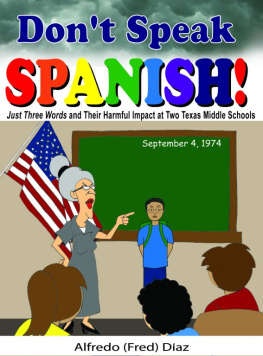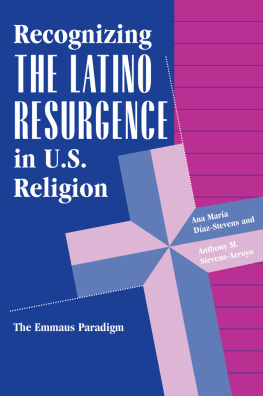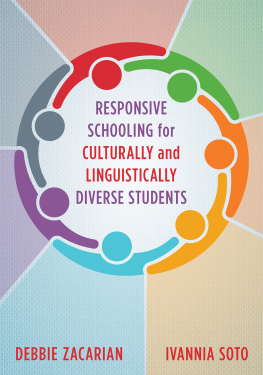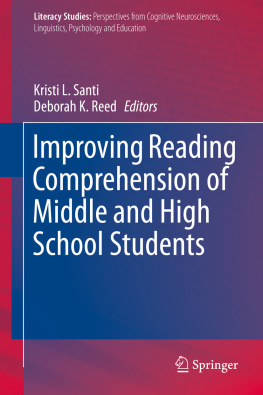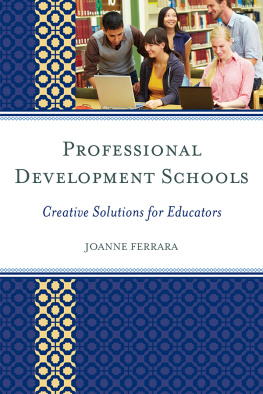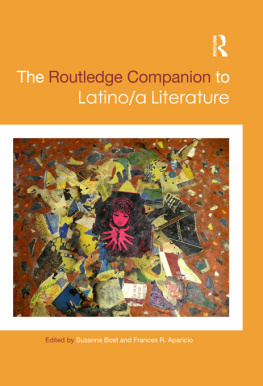Don't Speak Spanish!
Just Three Words and Their Harmful Impact at Two Texas MiddleSchools
By Alfredo (Fred) Diaz
Copyright 2015 AlfredoDiaz
Smashwords Edition
Smashwords Edition, License Notes
Thank you for downloading thisebook. This book remains the copyrighted property of the author,and may not be redistributed to others for commercial ornon-commercial purposes. If you enjoyed this book, please encourageyour friends to download their own copy from their favoriteauthorized retailer. Thank you for your support.
Table of Contents
...
Introduction
In 2002, Jacobson Middle had a reputation asone of the most violent and unstable schools in the district. As afirst-year assistant principal, I could sense the level offearlessness and disregard for authority in the student body. Iknew that my first priority was to help stabilize the school beforeI could explore additional factors inhibiting achievement. Iborrowed from my Army experience to create a disciplinary persona.The Dress Code Gestapo, as I would be called, allowed me to breakthe stranglehold held by the schools anti-authority element. Withthe tacit approval of the school principal, the unwavering supportof the campus officer, and a growing faculty and staff involvement,significant progress was made after a three-year campaign. Wediminished student aggression and defiance considerably by the endof the 2005-2006 school yeara level of tranquility not experiencedin twenty years.
Previously, I had participated in anethnographic study on academically successful Asian and Latinostudents. Respondents reported a strong ethnic identity, and nativelanguage maintenance, as critical factors in their school success(Zou & Trueba, 2001). At Jacobson Middle, a predominatelyLatino school, I was able to observe the impact of a weak ornebulous cultural identity upon student behavior and performance.With the use of Spanish and English, along with knowledge of Latinosociocultural dynamics, I was able to get inside the communitysculturerather than looking at it as an outside observer. I wasconvinced that the erosion of self-discipline and respect that Iencountered was tied to Jacobsons subtractive schooling(Valenzuela, 1999) environment. In a less-than culturallyreaffirming environment, undesirable forms of identity development,including the gang subculture, quickly filled a void in manyyouths needs.
In the first half of this personalnarrative, I describe earlier experiences and self-discoveries thathelped to transform my ethnic self-concept. In my early twenties, Iwas stationed with the Army in the Panama Canal Zone. Upon myarrival, I realized that I had suffered from an ethnic inferioritycomplex since my youth. I was able to make the self-diagnosis byreflecting on my primary symptoms. My reluctance to respond in theSpanish language throughout my adolescence and teenage years wastied to a negative ethnic self-perception. This was exacerbated bymy limited fluency in Spanisha language that, along with English,was central to my bicultural identity. While stationed in Panama, Idiscovered that native language redevelopment was the first step inreversing the impact of an ethnic inferiority complex.
Shortly after my departure, I enrolled in acollege freshman English class. An unexpected writing assignmentallowed me to examine my ethnic heritage in South Texasextendingback to the mid-1700s. My cultural sense of belonging, whichI had not contemplated much throughout my school-age years, beganto crystallize. Hispano-Mexican culture, along with the Spanishlanguage, was inextricably tied to the historical and culturalfoundation of Texas, and much of the Southwest USA. Some yearslater, the discovery of a hand-carved figure of a Mayan deity,Yum Kaax, in the schools garden would lead to a greaterepiphany regarding the role of the history curriculum in depictingthe Amerindian roots of the majority of mainland Latinostudents.
In college, I became aware to what extentAmerica actually valued the Spanish language. Mainstream studentschose the Spanish language, overwhelmingly, to meet their foreignlanguage requirement. I concluded that Spanish languagemaintenance, along with English, offered members of the Latinocommunity greater socio-academic benefits than English languagedevelopment alone. I entered the teaching field with the hope ofsharing some of these personal insights and experiencesas well asto challenge many contradictory and elitist notions ineducation.
After nearly achieving exemplary status inthe 2009-2010 school year, Jacobson Middles new principal decidedto relax dress code enforcement. Within weeks, students reverted toa level of incivility that quickly overwhelmed the administrativeteam. My description of the behavioral transformation at Jacobson,and its return to a chaotic state, underscores the institutionsrole in promoting student disengagement problems. Of greaterconsequence, by disregarding the importance of student culturalidentities, and steadfastly adhering to subtractive schoolingpractices and goals, Jacobson Middle has fueled disaffection andmisconduct for decades.
In September of 2010, I was reassigned toTurner Middle for strategic purposes. Upon my arrival, Iperceived much ethnic discrimination toward Latino students.Reportedly, up to two hundred Latinos zoned to Turner hadtransferred to other area schools prior to the start of the schoolyear. I found that Dont speak Spanish!an attack on the heart ofLatino cultural identitywas in common use as a classroommanagement tool. With the support of the principal, I went to workto challenge this discriminatory treatment. I was aware of howdamaging those three words could be to Latino self-perception, aswell as their negative impact on student global and academicself-concept.
In this account, I attempt to shed light onhow two seemingly distinct aspects of schooling, campus disciplineand school sociocultural philosophy, are actually highlyinterrelated variables. Jacobson and Turner purportedly valuestudent language and culture, yet they do next to nothing topromote a culturally reaffirming environment. This can onlycompound the behavioral and academic difficulties of Latino youth.Few things are more threateningand damaging to Latino biculturalidentity than a school ban on his or her home language. AtJacobson, while not as apparent as Turner, the restriction onstudent language and culture was implicit through its subtractiveschooling practices.
Many people may be surprised to find thatthe denigration of Latino student cultural identity continues to bejustified by some educational personnel for discipline andclassroom management purposes. I hope that this account will raisegreater consciousness among public educationpractitionersincluding those that may employ those demoralizingwords (Dont speak Spanish!) for altruistic, yet misguided,reasons. With increased awareness, there can be no pedagogicaladvantage, or justification, for banning the use of Spanish in atwenty-first century classroom. The time is long overdue to finallydo away with this anachronistic and often debilitating practiceinboth its overtly discriminatory, and institutionalized subtractiveschooling forms. The potential loss of self-esteem to Latino youth,alone, demands that educational professionals re-evaluate itsharmful impact.
Acknowledgments
I have received much input from many of myfriends and colleagues. It was positive and constructive when Ineeded reaffirmation about the relevancy of the topic. Thisincluded: Terry Myers, Bruno Boffa, Pio Mendez, Michael Crow, WaltEvanoski, Rangel Espinosa, Charles Douglas, Roberto Corral, DonPope, Bob Hawkins, Irma Tamez, Ozzy Reyes, Clint Conover, FlavioOrtiz, Uma Natarajan, Mary Ortiz, Jenny Smith-Murry, OscarCastrillon, Manny Alvarez, Reginaldo Villalon, Benedict Eloja, Dr.Steve Fullen, Kenneth Crow, and my dad, Jose Antonio Diaz Sr., manyof whom read and commented on portions of the draft. HeatherJackson and Deanna Woolen offered critical perspectives on grammarand wording, and acted as primary sounding boards. Bill Banfieldplayed devils advocate so well, at times, that our discussionsnearly reached the boiling point! I really do appreciate what hedid to help organize my thoughts, and for all the times that wesorted through related topics over the preceding years.

